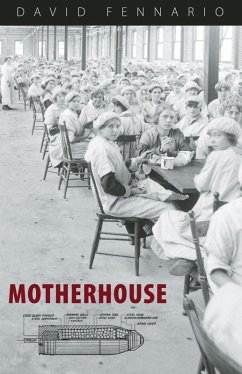From the renowned author of Balconville, this powerful drama gives a voice to the disillusioned working-class women employed at the British Munitions Factory in Verdun, Quebec, during the First World War. Following in the trudging footsteps of Fennario's anti-war protest play Bolsheviki (Talonbooks, 2012), Motherhouse similarly debunks the sentimental notions of duty, heroism, and nationhood that figured so prominently in Canadian war effort campaigns and that persist in Canadian history textbooks today.
In 1915, with tensions running high across the country over conscription and linguistic and religious issues, dedicated mothers, wives, sisters, and sweethearts assemble artillery shells to support the war effort and inadvertently find themselves assembled to bring about change both in their working conditions and in their personal lives. Meanwhile, their beloved soldiers die on battlefields overseas while their children starve at home because of war profiteering. Verdun's munitions manufacturer employed more than four thousand women during the war, including Fennario's mother. Tragically, the city of Verdun sacrificed more soldiers to both World Wars than any other place in Canada.
In 1915, with tensions running high across the country over conscription and linguistic and religious issues, dedicated mothers, wives, sisters, and sweethearts assemble artillery shells to support the war effort and inadvertently find themselves assembled to bring about change both in their working conditions and in their personal lives. Meanwhile, their beloved soldiers die on battlefields overseas while their children starve at home because of war profiteering. Verdun's munitions manufacturer employed more than four thousand women during the war, including Fennario's mother. Tragically, the city of Verdun sacrificed more soldiers to both World Wars than any other place in Canada.
Dieser Download kann aus rechtlichen Gründen nur mit Rechnungsadresse in A, D ausgeliefert werden.









